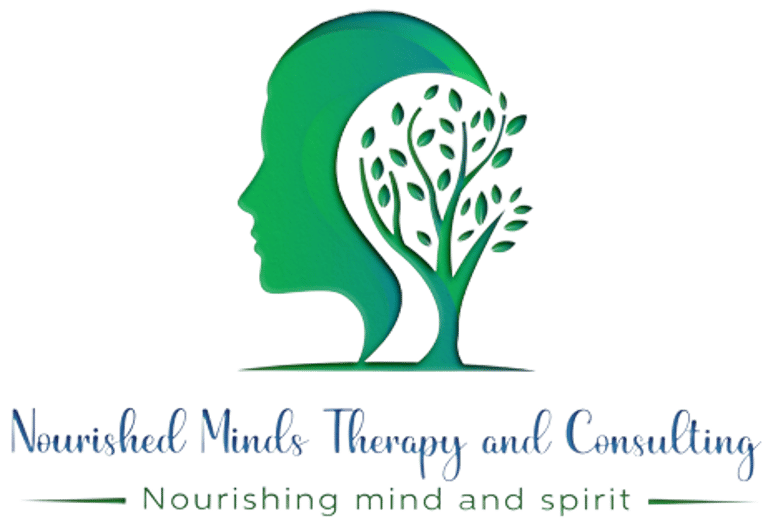

Eating disorders are complex and often misunderstood, but they affect millions of people worldwide. Despite their prevalence, there are many misconceptions surrounding disordered eating behaviors, leading to stigma, shame, and barriers to seeking help. In this blog post, I aim to dispel some of the most common myths surrounding disordered eating and eating disorders and shed light on the facts. By understanding the truth, we can increase empathy, support, and effective interventions for those who are struggling. Whether you're personally affected by disordered eating, know someone who is, or simply want to learn more, this post will provide valuable insights and information to help challenge stereotypes and promote understanding. Let's dive in and explore the reality behind the myths of disordered eating.
Myth 1: Disordered eating is always obvious.
Fact: Disordered eating behaviors can be subtle and may not always be immediately apparent to others. It's essential to recognize that individuals struggling with disordered eating may not fit stereotypes or show visible signs of their struggles.
Myth 2: Only young women experience disordered eating.
Fact: Disordered eating can and does affect individuals of all ages, genders, and backgrounds. Men can develop disordered eating and distorted views of their body, though it may be more likely to be noticed in women. Certain marginalized groups that experience stigmatization at higher rates, including minorities, queer persons, non-binary individuals, and transgender individuals are particularly vulnerable to developing disordered eating behaviors. Sadly, they are less likely to have someone recognize they are struggling with an eating disorder and often do not receive the help they need.
Myth 3: Eating disorders are a choice.
Fact: Eating disorders are complex mental health issues influenced by various factors, including genetics, environment, and psychological factors. Eating when one is struggling with this type of disorder is not simply a matter of willpower or personal choice.
Myth 4: You have to be underweight to have an eating disorder.
Fact: While being underweight may be a symptom of some eating disorders like anorexia nervosa, individuals can have eating disorders at any weight. Eating disorders such as bulimia nervosa, binge eating disorder, and avoidant/restrictive food intake disorder (ARFID) can occur in people of all sizes. It is also important to note that atypical anorexia (anorexia that doesn't meet the low weight threshold) is just as life threatening as anorexia, with the same types of thought processes and behaviors. Many individuals with eating disorders may appear to be a "normal" weight or larger bodied while still struggling with disordered eating.
Myth 5: Disordered eating is just a phase.
Fact: Eating disorders are serious mental illnesses that require professional treatment. Without intervention, they can persist for years and have severe consequences on physical and mental health. Unfortunately, eating disorders have one of the highest mortality rates of any type of mental health disorder.
Myth 6: You can't recover from an eating disorder.
Fact: Recovery from an eating disorder is possible with the right support and treatment. It may involve therapy, nutritional counseling, medical monitoring, and support from loved ones. Many individuals go on to live healthy, fulfilling lives after recovering from an eating disorder.
Myth 7: Disordered eating is solely about food.
Fact: Disordered eating is often driven by complex emotional and psychological factors. It may serve as a way for individuals to cope with stress, trauma, or low self-esteem, and addressing underlying mental health issues is crucial for recovery.
Myth 8: Eating disorders are caused by vanity or a desire to be thin.
Fact: Eating disorders are complex mental health conditions with multifaceted causes. While societal pressures and cultural ideals of beauty may contribute to the development of disordered eating, there are often deeper underlying issues at play.
Myth 9: Only extreme behaviors like starving oneself count as disordered eating.
Fact: Disordered eating encompasses a broad range of behaviors and attitudes toward food and body image, including restrictive eating, extreme exercise to compensate for perceived overeating, binge eating, extreme thoughts about food in moralistic terms such as "good" or "bad," purging, and obsessive thoughts about food and weight. Eating disorders, at the most acute end of the spectrum, are diagnosable conditions that require professional intervention and support.
Myth 10: Eating Disorders are not as serious as other mental illnesses.
Fact: Eating disorders have the 2nd highest mortality rate of any mental illness, and they can have severe consequences on physical and mental health, including heart problems, digestive issues, depression, anxiety, panic, cardiovascular issues, hormone imbalances, loss of menstrual cycle, inability to focus, difficulty swallowing, stunted growth, low bone density, hair loss, skin issues, and electrolyte imbalances (to name a few)!
Myth 11: Talking about disordered eating will make it worse.
Fact: Open and honest communication about disordered eating can be a crucial first step toward recovery. Seeking support from friends, family, or a healthcare professional can help individuals feel understood and empowered to seek help.
Myth 12: Disordered eating is just a phase of adolescence.
Fact: While disordered eating often develops during adolescence, it can occur at any age. Adults, older adults, and even children can struggle with disordered eating behaviors.
Myth 13: You have to have a diagnosed eating disorder to seek help.
Fact: You don't need a formal diagnosis to seek help for disordered eating. If you're struggling with your relationship with food or body image, it's essential to reach out to a healthcare professional or therapist for support and guidance. Early intervention can prevent disordered eating from worsening and improve overall well-being. Nourished Minds Therapy specializes in the treatment of eating disorders, and consultations of how we can set up a plan of support are always free.
As we can see, disordered eating can affect anyone and show up in many different forms at any time in a person's life. Debunking these common myths for yourself or someone you know is a crucial step in being able to receive the proper help or support.






